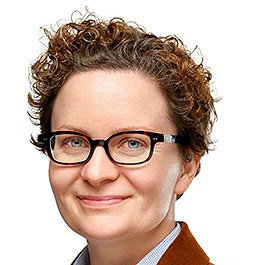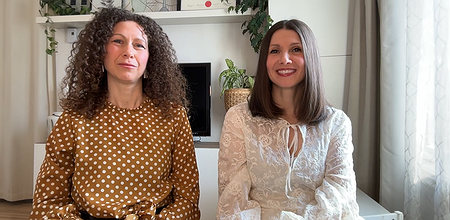- Understand the three causes of chronic insomnia
- Match the main components of CBT-I to the three causes of insomnia and combine CBT-D and CBT-I without adding sessions
- Troubleshoot difficulties with getting clients out of bed
- Collaboratively devise a new sleeping schedule with clients
Effective solutions for Insomnia Disorder and Major Depression: Integrating Cognitive Behavioural Insomnia Therapy with CBT for Depression
Prof. Colleen Carney, Psychologist
Treat insomnia alongside depression with effective CBT protocols
Excerpt: reasons to use cognitive behavioral therapy for insomnia
- 6h of continuing education
- 35 lessons that last from 5 to 15 minutes each
- 1 certificate of achievement
- 1 power-point
- 1 bibliography
- 1 course evaluation
- 7-day money back guarantee
- Unlimited access
- 98% of participants who completed the satisfaction survey declare they would recommend this course to a colleague
Overview
Although many depression treatments don't directly target insomnia, research highlights the importance of addressing it. Indeed, untreated insomnia is linked to poorer outcomes and greater relapse. Additionally, it's important to note that insomnia does not always remit after depression treatment.
To help you with this challenge, Dr Colleen Carney has designed a workshop that illustrates how you can combine Cognitive Behavioral Therapy for Insomnia (CBT-I) with other protocols to treat insomnia and depression at the same time.
The workshop will address practical and evidence-based strategies for managing and treating both conditions. You will be equipped with tools and therapeutic techniques that can be integrated into your practice.
For example, increased time spent out of bed during CBT-I is compatible with the integration of behavioral activation, as well as cognitive behavioral strategies for fatigue. Psychoeducation about activities that promote alertness, sleep, and mood can be helpful across several comorbidities and increase treatment buy-in and motivation.
Similarly, the focus on modifying safety behaviors and threat monitoring, as well as challenging perfectionistic and other unhelpful beliefs is compatible with the focus of providing anxiety strategies.
This workshop will provide considerations for decision-making about sequencing and integration of treatments, as well as suggestions for combining treatments.
All this is provided through didactic instruction, experiential exercises, demonstrations, and clinical handouts from a leader in the field of cognitive behavioral treatment of comorbid insomnia.
Accreditation
Collège des médecins du Québec
For physicians who practice psychotherapy, training recognized by the Ordre des psychologues du Québec is automatically considered as activities adopted by the Collège des médecins, in accordance with Article 3 of the Regulation.
For physicians who do not practice psychotherapy, the College evaluates each recognition request based on the following criteria:
- the relevance of the activity to the practice of the profession
- the skills and experience of the trainer
- the quality of the content and its adequacy with the physician's practice
- the pedagogical framework of the activity
- the quality of the documentation provided
- compliance with the training objectives set out in the regulation
- the presence of a certificate of participation or an evaluation
About the expert

Prof Colleen Carney is an associate professor in the Psychology Department at Ryerson University and the director of the Sleep and Depression Laboratory. She is a leading expert in the treatment of insomnia, particularly in the context of co-occurring illness. She has over 100 publications on insomnia including six books.
Her recent books for professionals include Treatment Plans and Interventions for Insomnia: A Case Formulation Approach, and books for clients include Goodnight Mind: Turn Off Your Noisy Thoughts and Get a Good Night’s Sleep. Dr. Carney is a lively presenter and a passionate advocate for improving access to effective treatment.
Learning objectives
Learning material
This workshop includes theory as well as clinical examples. It includes videos ranging from 5-15 minutes in length. The PowerPoint of the workshop can be downloaded.
Syllabus
- PowerPoint
- Clinical handouts
- 1. Introduction
- 2. Reasons to use cognitive behavioral therapy for insomnia
-
The basics of assessment
- 3. What is insomnia?
- 4. How to assess?
-
Other Sleep Disorders
- 5. The Epworth sleepiness scale
- 6. Sleep apnea
- 7. Referral
-
Sleep regulation: Understanding what regulates sleep to understand insomnia
- 8. Homeostatic mechanism
- 9. Body clock essential
- 10. What causes chronic insomnia?
- 11. Homeostatic perpetuating factors
- 12. Process C-Cicardian perpetuating factors
- 13. The arousal system
-
Step-by-Step Guide to cognitive behavioral therapy for insomnia
- 14. Stimulus control
- 15. Why people can't get up at the designated rise time?
- 16. People who don't feel like getting up in the morning
- 17. Bed as an escape
- 18. Sleep restriction therapy
- 19. Determine time in bed window
- 20. Combined SRT-Stimulus control summary
- 21. Sleep hygiene
-
Counter Arousal
- 22. Buffer zone
- 23. Processing strategies
-
Cognitive Therapy
- 24. Two basic core beliefs
- 25. Let's try an experiment
- 26. Session outline
-
Implementation Issues
- 27. Treat depression, insomnia, or both
- 28. Combined psychoeducation
- 29. A study about people with depression and insomnia
- 30. BABIT
- 31. The people who can't do it because they feel too tired
- 32. Case study
- 33. Adaptation
- 34. Medication
-
Questions
- 35. Questions
- Bibliography
CE Credits
Download a certificate of successful completion.
Audience
This training is intended for mental health professionals.
Your comments
"Helpful for therapists who struggle with insomnia themselves, especially the sleep diary." (automatically translated)
A psychotherapist
"excellent information gained, great lecturer, interesting" (automatically translated)
A psychologist (Canada)
"A great course. Thanks!!!"
A psychologist (Canada)
"The presenter is very engaging, especially considering the length and detailed course material. I like her collaborative attitude towards clients"
A psychologist (Canada)
"I really like the instructor's manner and way of teaching"
A psychotherapist (Canada)
"This course was super easy to access, the materials are clinical useful and I will be able to use them right away. The presenter is funny and very knowledgeable. I learned so many things I did not know about this topic. I will take a course on this platform again – there were no glitches with using it at all. Highly recommend."
A psychologist (Canada)
"Outstanding presenter. Polished, engaging and witty. Learned a lot, but will be reviewing as there was so much new information for me. Thank you for this incredible experience."
A psychologist (Canada)
"It was an excellent course and the amount of information was extensive so it could have been done in a two-day format."
A neuropsychologist (Canada)
Registration
Ask a question
Do you have a question? Then email us at contact@asadis.net
Frequently asked questions
-
Is there an evaluation at the end of the course?
To validate the achievement of the learning objectives, a final evaluation in the form of true/false questions is required. It must be completed in order to obtain the certificate of completion.
In addition, an optional self-assessment is offered at the beginning and end of the course, allowing you to measure your progress on the targeted skills.
These evaluations are not graded and are intended primarily to support your professional reflection.
-
I have a disability. Can I receive specific support?
Yes! This training is offered as a pre-recorded video format, without subtitles. If you have a disability, we can provide an adapted alternative (technical assistance for viewing or individual supervision). For any request, please contact our disability coordinator at the following address: contact@asadis.net
-
How long do I have access to the course?
After your registration, the course is accessible anytime and from anywhere with unlimited access.
-
When does the course start?
That is entirely up to you! When you buy a course, you'll receive an access link that you can activate when you want.
-
Is there a student rate?
Yes there is! To learn more, email us at contact@asadis.net.
You may also be interested in:
Legal notice
The courses offered by ASADIS are accredited by different professional organisations. In addition, ASADIS is approved by the Canadian Psychological Association to offer continuing education for psychologists. ASADIS maintains responsibility for the program.
The CPA’s approval of an individual, group, or organization as a CE Sponsor or Provider is restricted to the activities described in the approved application or annual report form. The CPA’s approval does not extend to any other CE activity the Sponsor or Provider might offer. In granting its approval, the CPA assumes no legal or financial obligations to Sponsors, Providers, or to those individuals who might participate in a Sponsor or Provider’s CE activities or programs. Further, responsibility for the content, provision, and delivery of any CE activity approved by the CPA remains that of the CE Sponsor or Provider. The CPA disclaims all legal liability associated with the content, provision, and delivery of the approved CE activity.




